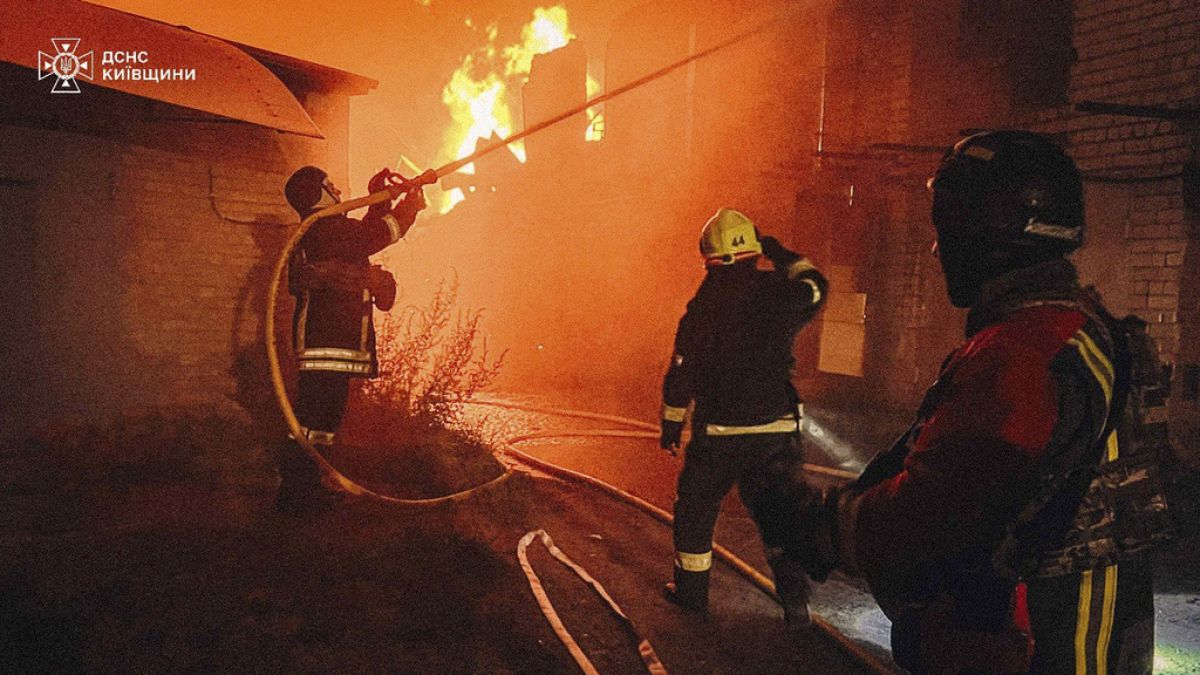

In a series of significant global developments, tensions have escalated in several regions, notably in Ukraine, Israel, and Pakistan. These events underscore the ongoing challenges the world faces in maintaining peace and stability amidst complex geopolitical landscapes.
In Ukraine, the conflict continues as Russian military actions have resulted in tragic losses. Ukrainian authorities report that residential areas, along with social infrastructure in the Donetsk and Kherson regions, have been targeted, leading to the unfortunate deaths of at least five individuals. This escalation has prompted ripples of concern, highlighting the devastating impact on civilian lives and the delicate balance of power in the region. The situation in Ukraine remains tense as both sides continue to engage, with Ukraine also reporting strategic responses to counter these attacks.
Interestingly, Ukraine has reported a significant military maneuver in the form of a strike on a Russian airbase. This move followed a “very important and productive” conversation between Ukrainian President Volodymyr Zelenskyy and US President Donald Trump. The communication between these two leaders may suggest continued international support and strategic alignment with Ukraine amid rising tensions. This dynamic interaction between nations marks a pivotal moment that could influence future engagements and peace efforts in the region.
Meanwhile, in Pakistan, the strain of regional violence has been pronounced as Pakistani troops reportedly thwarted an incursion by militants from Afghanistan, resulting in the deaths of 30 attackers. This confrontation emphasizes the persistent threat of militant activity in the region, attributed mainly to the Pakistani Taliban, who maintain close ties with their Afghan counterparts. Such events highlight the ongoing security challenges faced by Pakistan in maintaining territorial integrity and ensuring the safety of its citizens.
Across to the Middle East, the Israeli-Gaza conflict has claimed further lives amidst intensifying military actions. With reports of 38 casualties resulting from fresh Israeli airstrikes in Gaza, the situation remains urgent as international actors seek to mediate peace. Prime Minister Benjamin Netanyahu is actively pursuing diplomatic avenues and is en route to the United States for discussions with President Trump regarding a possible ceasefire. This effort underscores the critical role of international dialogue and cooperation in seeking resolutions to protracted conflicts.
These developments across various regions illustrate the intricate tapestry of global relationships, each with its own challenges and prospects for peace. Whether it is the sensitive geopolitical interplay in Eastern Europe, the enduring fight against extremism in South Asia, or the deep-seated conflicts in the Middle East, the road to peace requires mindful negotiation and a collective commitment to dialogue.
In these trying times, the global community is reminded of the importance of not just immediate responses but also long-term strategies that promote stability and understanding. The ongoing discussions and diplomatic engagements provide hope that through sustained efforts, a path toward peace can be forged, promising a better future for all those affected by these conflicts.
As we observe these significant global events, it is essential to remain informed and engaged, advocating for peaceful solutions that prioritize human lives and foster international solidarity. The power of diplomacy and collaborative efforts remains pivotal in navigating these turbulent times, offering a beacon of hope in the pursuit of a harmonious global community.
Source: {link}
